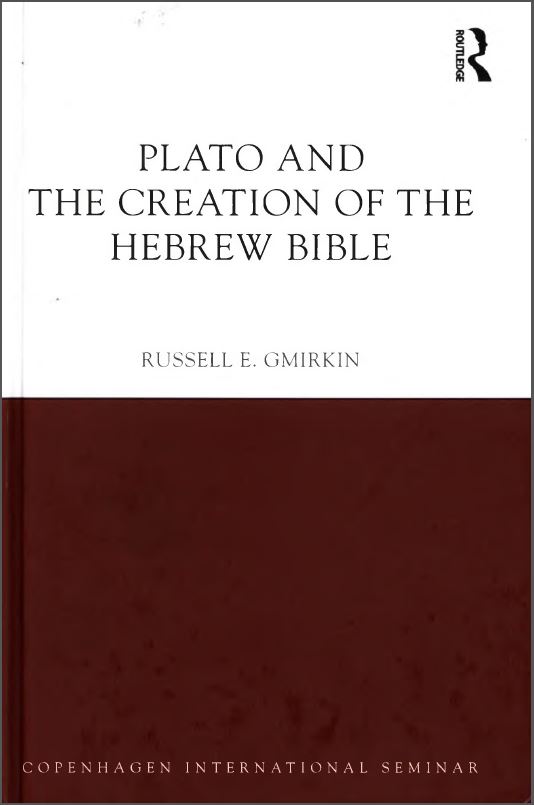 Russell Gmirkin in his new book, Plato and the Creation of the Hebrew Bible draws attention to striking similarities between the Pentateuch (the first five books of the “Old Testament”) on the one hand and Plato’s last work, Laws, and features of the Athenian constitution on the other. Further, even the broader collection of writings that make up the Hebrew Bible — myth and history, psalms, wisdom sayings, moral and religious precepts, all presented with the aura of great antiquity — happen to conform to Plato’s recommendations for the sorts of literature that should form the national curriculum of an ideal state.
Russell Gmirkin in his new book, Plato and the Creation of the Hebrew Bible draws attention to striking similarities between the Pentateuch (the first five books of the “Old Testament”) on the one hand and Plato’s last work, Laws, and features of the Athenian constitution on the other. Further, even the broader collection of writings that make up the Hebrew Bible — myth and history, psalms, wisdom sayings, moral and religious precepts, all presented with the aura of great antiquity — happen to conform to Plato’s recommendations for the sorts of literature that should form the national curriculum of an ideal state.
The idea that the Jewish scriptures owe their character and existence to the Hellenistic era, a time subsequent to Alexander’s conquests of the Near East, jars hard against traditional views of the origins of the Bible. Yet Gmirkin shows that many significant laws in the Pentateuch as well as the narrative style of their presentation are indeed closer to later Greek ideas than those found among Israel’s/Judea’s Syrian or Babylonian neighbours.
The key to this close linkage is the Great Library of Alexandria. Past studies exploring possible cultural contacts between the Greeks and Judeans prior to the Hellenistic era (that is, the period following Alexander the Great, from around 320 BCE) have generally shown that exchanges were primarily limited to trade and had minimal impact in the literary and philosophical sphere. On the other hand, we do know that Jews and Greek culture met in Alexandria. The history of the Athenian Constitution was available in the works of Aristotle there; Plato’s reflections on the ideal state and laws were also stored there. And the Hebrew Bible was said to have been translated into Greek there. Moreover, there is no external evidence for the existence of the Pentateuch prior to the Hellenistic era. In an earlier book, Berossus and Genesis, Manetho and Exodus: Hellenistic Histories and the Date of the Pentateuch, — see earlier Vridar posts — Gmirkin likewise argued that the Pentateuch was composed around 270 BCE and he introduces his new book as a sequel to Berossus and Genesis.
The main stimulus for Gmirkin’s new study is a desire to examine more closely some of the parallels presented by Philippe Wajdenbaum in Argonauts of the Desert: Structural Analysis of the Hebrew Bible. (Again, see earlier Vridar posts on Argonauts.) According to the Acknowledgements in Plato and the Creation of the Hebrew Bible it was Thomas L. Thompson who suggested this study to Russell Gmirkin, and Gmirkin explains that his focus was on Wajdenbaum’s discussion of the parallels between Plato’s Laws and the Pentateuchal laws as the most persuasive section of his book.
While on the Acknowledgements, I have to refer to one other detail that struck me: Continue reading “Plato and the Creation of the Hebrew Bible”
